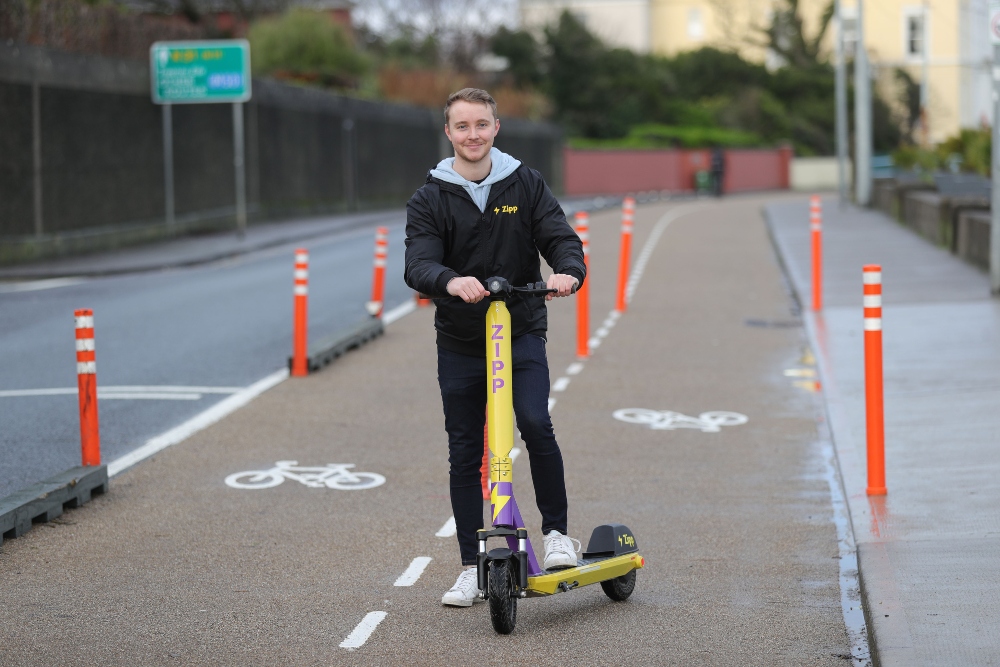The shift to remote working is just the tip of the iceberg as the pandemic has accelerated workforce trends and the need for human skills, says Ger McDonough from PwC Ireland.
In one of the largest-ever studies of the global workforce, a survey of 32,600 workers in 19 countries by PwC illustrates a revolution in the workplace.
Reflecting the fact the pandemic has accelerated a number of workforce trends, 60pc are worried that automation is putting many jobs at risk; 48pc believe ‘traditional employment won’t be around in the future’ and 39pc think it is likely that their job will be obsolete within five years.
“Only one in 10 people want to go back to the commute, or what we would stereotypically describe as being in the office or the nine-to-five”
But it’s not all doom and gloom as workers are being proactive about their future and are taking their destiny into their own hands. 40pc of workers say their digital skills have been improved through the prolonged period of lockdown, and claim they’ll continue to embrace training and skill development. 77pc are ready to learn new skills or completely re-train and 74pc see training as a matter of personal responsibility. And, 80pc are confident they can adapt to new technologies entering their workplace.
In addition, nearly half (49pc) of respondents are focused on building entrepreneurial skills with an interest in setting up their own business.
On top of that, the survey found there are disparities in access to upskilling opportunities. While 46pc of people with postgraduate degrees say their employer gives them many opportunities to improve their digital skills, just 28pc of people with school-leaver qualifications say the same. Industries like retail or transport, which are most at risk of disruption, score just 25pc and 20pc respectively; while banking scores 42pc.
The purpose of the future office environment
So what does the future of work hold as the promise of vaccinations heralds a return to normality. Will it go back to the way it was?
“There’s also a danger of advocating full flexibility but not practicing it. Leaders need to lead by example. They can’t advocate flexibility if they’re always in the office as well”
“The future of work is hybrid, the future of work is digital and the future of work is inclusive,” says Ger McDonough who leads the People & Organisation Consulting practice at PwC in Ireland.
“Only one in 10 people want to go back to the commute, or what we would stereotypically describe as being in the office or the nine-to-five. More than three-quarters (77pc) actually want to have a hybrid working environment. They want to spend some time working from home, they want to spend some time in an office or at headquarters. There’s a school of thought that the workplace is no longer a physical building but a time zone that you are in.”
Prior to the pandemic, many new entrants to the workforce from Generation Z, said they wanted to work at companies that reflected their personal values. But, according to PwC’s research, the pandemic may have changed this somewhat and younger people are more focused on maximising income than “making a difference.”
Has Generation Z changed or just adapted? “Well, 75pc of people want to work in an organisation that makes a positive contribution to society. I think Gen Z still wants to do that, but not at any cost. People in the 55-plus age group have greater financial security and what we’re learning is the younger generation still hold their values but want to be certain that they are paid well. This time around they are looking for financial security too. They want to work for organisations with purpose and values, but not at any cost.”
For many young people, there is also the formative career years that involve being in the office and being able to learn from senior colleagues as well as the soft skills and inevitable office politics. Will all of that go out the window in the new world of work or will we see a situation where younger staff will prefer to be based in urban offices while senior, more experienced staff will embrace a more flexible world of work?
“The office environment should be for community and collaboration. A phrase doing the rounds right now is “diversity of home circumstances.” Senior employees own their own homes whereas younger staff may be sharing an apartment and it’s a case of Rock, Paper, Scissors for who gets to use the kitchen table this week. So younger staff will most likely gravitate towards the office because they want the connectivity, the culture and learning experiences.
“There’s also a danger of advocating full flexibility but not practicing it. Leaders need to lead by example. They can’t advocate flexibility if they’re always in the office as well. You cannot have organisations saying they are flexible if the leadership team are there the whole time. So, there could be a danger of a proximity bias or digital disconnect if companies are not careful.
“There’s a lot of work to be done for leaders in terms of how to manage that hybrid workforce and not to make decisions that are beneficial only to individuals who are in front of them, disadvantaging others who are not in the room.”
Avoid proximity bias
According to McDonough, the challenge of the hybrid working world will be ensuring there isn’t any proximity bias or a sense of lost opportunities because people aren’t sharing lifts or enjoying those old watercooler moments because you are only there on certain days.
“The real answer is to embrace true flexibility. Not replicating the 9-to-5, but maybe you can come in at 2 and leave at 4”
“You are going to have to embed an awful lot of trust in your organisation so that people in teams can hold themselves to account.”
He also said that taking a prescriptive approach of ruling that you can only be in the office certain hours or percentages of your time could undermine such trust if people constantly chop and change to suit their circumstances.
“When you do go into the office environment it will have to be purposeful, with the objective of getting things done, hanging out with the team, heading out for lunch or dinner or going to a gig together. The real answer is to embrace true flexibility. Not replicating the 9-to-5, but maybe you can come in at 2 and leave at 4.”
McDonough said that challenge of the hybrid future will be walking that line between fairness and flexibility and demonstrating true leadership. “Just don’t make the mistake of calling it flexibility and then reverting to type. What you want to do is create an environment where people feel they are in control of how they work, where they work and when they work. Otherwise they’ll just go and find an organisation that would give them more levels of flexibility to work within.”
Human skills will trump robotic skills
With the threats of automation and technological disruption increasing, upskilling is paramount and 40pc of global employees say their skills improved during the lockdown. While 75pc of Irish CEOs say they are concerned about the availability of key skills, just 25pc plan to invest in talent development.
“Those human skills will be critically important, probably more so than digital tech skills”
McDonough says workers no matter what they do need to develop a broad church of skills that complement their core skills.
“There’s a lot of focus on digital skills and workers will need to master tools like Tableau to make sense of data. But digital skills are just a part of the equation. Workers need to also focus on human skills, like resilience and adaptability, creativity, it’s the STEM to the STEAM (science, technology, engineering, arts, maths), to bring levels of emotional intelligence to the table.
“Younger people will need to be in a situation to challenge decisions, more so than they would be if they had been several years in a firm. That ability should cascade down to more junior levels in a fast-paced environment. Core skills are one thing, breadth and depth of skills are another. It’s about embracing all of the things you understand and apply them through negotiation skills and a wider church of skills. Those human skills will be critically important, probably more so than digital tech skills,” McDonough advised.
By John Kennedy (john.kennedy3@boi.com)
Published: 31 March 2021
-
Bank of Ireland is welcoming new customers every day – funding investments, working capital and expansions across multiple sectors. To learn more, click here
-
Listen to the ThinkBusiness Podcast for business insights and inspiration. All episodes are here. You can also listen to the Podcast on:
-
Spotify
-
SoundCloud
-
Apple






